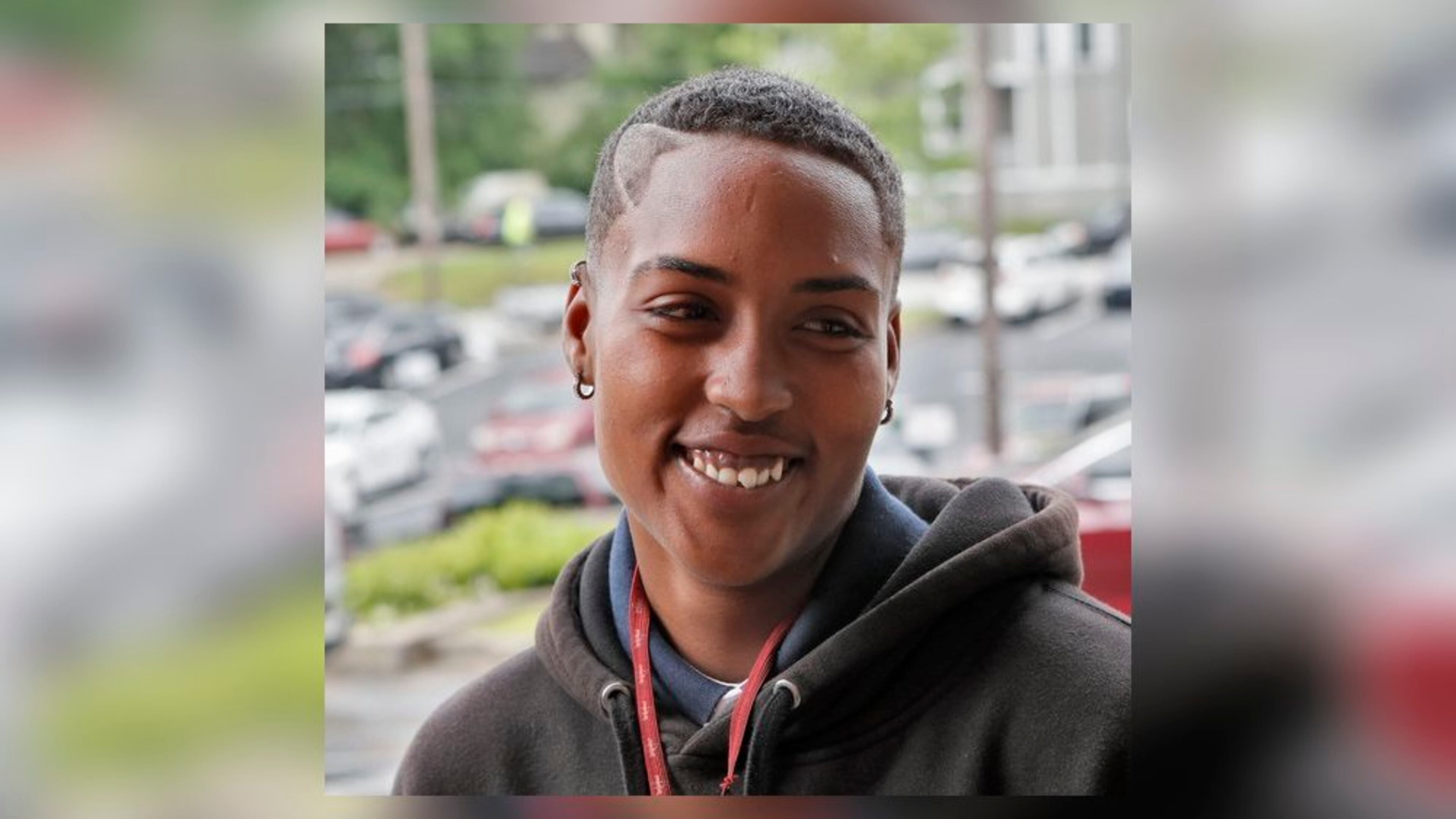Atlanta’s jobs agency struggles to emerge from troubled past

Nadiyah Muhammad graduated about two weeks ago from a 10-month program aimed at buffing her reading and math skills and giving her hands-on training in the construction trades — painting, carpentry, plumbing and, her favorite, wiring.
The experience has been life changing, she said. She wants to be an electrician.
“I can’t believe power can flow from these hands,” she said, holding them in front of her as if in awe.
Muhammad hopes to get an apprenticeship or job through the professionals she met at WorkSource Atlanta.
"I will get a job," she said.
WorkSource Atlanta was built to generate that kind of hope. Its task is to connect the young to that critical first job, as well as to help laid-off, disabled and chronically unemployed Atlantans find work by providing training and support.
But for decades, the agency has posted a record of underachievement, failure and even criminal activity. In six years, the agency has cycled through five chief executives. It has returned federal training dollars because of missed deadlines and been ordered to pay back money for improper payments.
City officials are hopeful that the latest executive, Kimberlyn Daniel, appointed nine months ago by Mayor Keisha Lance Bottoms, will get the program on track. In a sign of progress, the agency has increased its outreach. Among continued problems, though, two high-profile leaders resigned suddenly, and Daniel was upbraided by city council members for not delivering a budget in time. A key litmus test will be whether the agency keeps or loses millions of dollars in grants by a June deadline.
“I know we’ve had problems, and frankly it has not reached its full potential,” Felicia Moore, Atlanta City Council president, said of WorkSource.
The agency has had ineffective board members, and many clients found it wasn’t helpful in landing them jobs, she said.
Moore would give WorkSource a D grade, she said. Maybe a D-plus.

WorkSource Atlanta is one of 19 regional workforce development agencies in Georgia. They provide or contract with businesses or technical colleges to provide training, apprenticeships, job counseling and wraparound services that include everything from resume writing to teaching the importance of timeliness and appearance.
All layers of government have some oversight of the hybrid organizations. Federal grants mostly fund WorkSource Atlanta; the Technical College System of Georgia monitors and guides it; Bottoms appoints the directors and board members, who also provide guidance.
WorkSource’s staff members are local government employees, though paid with federal money. The Atlanta City Council holds the purse strings, approving WorkSource Atlanta’s spending requests.
In Atlanta, the program has floundered, going back at least four administrations. Under Mayor Bill Campbell, two agency employees were accused of campaigning for him on city time. Questions were raised about whether an agency contract was a quid pro quo steered to a Campbell supporter.
A 2013 city audit noted the agency's problems with compliance with federal regulations, poor management, and pointed out most of its clients came from outside the city. The auditor's report recommended that the city shut down WorkSource.
But City Council members and other officials blasted the report and called for another study. That study described an unorganized agency that operated a number of disconnected programs and engaged in "little strategic thinking." The study said that neither the agency nor its board had the leadership to address the challenges it faced.
In 2014, federal investigators stepped in after an Atlanta Journal-Constitution report uncovered a fake jobs training program. The director resigned. A WorkSource contractor was sent to prison, and the city had to refund $1.8 million to the federal government.
In response, then-Mayor Kasim Reed appointed a staffer to take over temporarily, then hired former prosecutor Michael Sterling to guide WorkSource through the federal investigation. Sterling left after little more than a year to make an unsuccessful run for mayor. He was followed by three other executives, including Daniel, who still carries the title interim executive director.
Problems continue to arise. This year, the Technical College System of Georgia flagged the agency because some members of its staff were unable to prove they worked the hours they claimed. And the same board demanded that the agency pay back more than $32,000 in severance it gave to three fired employees, including Daniel's predecessor, in violation of federal regulations.
Through the constant change of leaders, the agency has dropped balls, such as letting a $1.3 million grant expire late last year.
At the same time, the agency is serving fewer people. Between July 2015 and July 2016, it served 1,746 people, according to a report from the Technical College System of Georgia. That dropped to 592 people in 2017-2018 — or about 11 people per week, on average, served by a staff of 38 at the time.

The agency had mixed results on its success rates for clients. Between July 2017 and June 2018, out of 223 youths ages 16 to 24 who came to it for training, 140 were in jobs six months after exiting the program. That is a 62.8% success rate. Its goal was 67 percent, according to documents received from the TCSG. Twenty-seven of 69 youths (39.1%) who entered a program seeking a credential actually gained one. The goal was 65.2%.
It had more success with adults. Of the 350 who came to WorkSource in that period, 244 (69.7%) were employed after six months. That is on target. Ninety-one of 166 adults who started a credentialing program finished. That exceeded the agency’s goal.
Daniel has a background in human resources, working for corporations such as SunTrust and First Data. She served a short stint as chief executive of the YWCA of Greater Atlanta in 2015, and later that year was listed as executive director of an agency that provides pro bono legal work to nonprofits.
She has not responded to multiple requests for interviews and walked away from a reporter trying to talk to her after a City Council meeting. Her agency and the city have not responded to requests for public documents, such as a budget, list of employees and salaries — recent directors of WorkSource have made more than $100,000 a year — or recent performance reports.
The city also did not respond to a request for an interview with Bottoms.
Daniel delivered a February update to the City Council committee that approves WorkSource spending. Committee chair Natalyn Archibong reminded Daniel that, eight months into the fiscal year, she had not delivered the copy of her budget that members had asked for three weeks earlier.
Though newly hired assistant director Valerie Carothers tried to explain the number of people the agency was helping, Archibong chided her and Daniel for not providing the information requested.
In April, 90 days after starting, Carothers unexpectedly resigned. The agency has not responded to a request to review her emails, which are public documents.
At the same time, board chairman Ann W. Cramer, a highly respected consultant with Atlanta’s Coxe Curry & Associates, who was seated in late October, also resigned. Cramer did not respond to requests for interviews.
In a second committee meeting in April, Daniel showed some progress in addressing agency challenges. WorkSource doubled its recruitment events from four in January, which reached 136 people, to eight in April, which reached 649. She hired two new advisers and sought help from McKinsey & Co., a management and consulting firm.
Bottoms has also lent Atlanta’s Chief Operating Officer Richard Cox to the agency to help.
Cox told the committee in April that he works with Daniel biweekly, reviewing programs and the agency’s work. “We have been doing that for a couple or three months now,” he said.
“The work we are doing as we are re-engineering this organization is very difficult,” Daniel told the committee.
Of chief interest to the committee members is the possible loss of more federal grants — $6 million worth — if they are not obligated by June. Before Daniel came on board, the agency failed to set up enough programming or to contract with others to do so. Unspent money can be taken back. And Daniel faces the problem at a time when unemployment rates are at historic lows statewide, 3.8% in April.
The agency scrambled to reach an agreement with Goodwill and City of Refuge to provide training for clients of the two organizations. And ResCare, a for-profit Kentucky firm, was hired to provide services at WorkSource Atlanta’s office south of downtown.
City Council member Matt Westmoreland knows there is still a need for WorkSource’s services. As a former teacher in Atlanta City Schools, he said he knows hundreds of kids who could have used the agency to get a step up in life.
“It makes me angry when this organization isn’t working like it is supposed to for residents of Atlanta.”
He also said he recognizes that all the links in the agency’s chain of responsibility bear some fault.
Committee members are especially concerned about the potential loss of a $3.6 million grant for the TechHire program, which teaches people computer coding.
Jeremie Peterkin, WorkSource’s interim deputy executive director, told the committee his agency is negotiating with two businesses to provide the classes.
He said he feels confident the agency will keep all or a portion of the grant.
Archibong remains hopeful.
“I do know we have turned a corner, it appears to me,” she said. “Now there are more eyes looking at the agency. I think we are paying better attention to the organization, which will help it be more responsive in the long run.”
Why it matters
WorkSource Atlanta receives millions of dollars in grants to train unemployed and young people for careers. It has struggled for decades with mismanagement and failure. If it doesn’t meet a June deadline, it will have to return federal funding.



